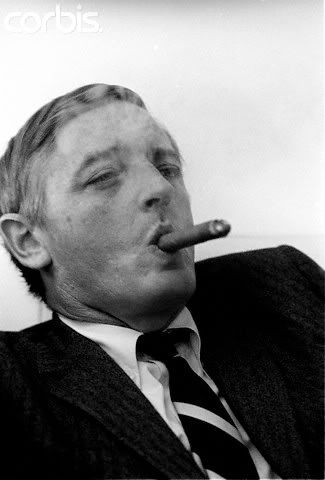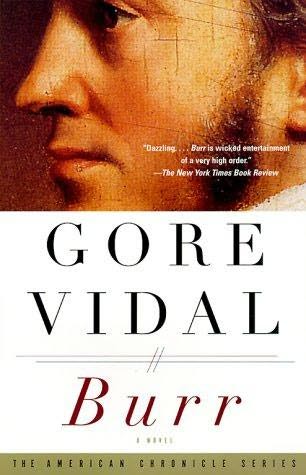 |
| One of these two men considered 'feline' a term of opprobrium. One did not. |
 |
| He liked cats. Dogs, too. |
This viewer's viewpoint differs with theirs.
Moreover this viewer, with caveats for the historical untruths that Vidal preferred or perhaps wasn't even self-aware of holding, continues to admire Vidal's attempts to write American history as fiction in his series of novels collectively known as Narratives of Empire, from the era of Burr, Hamilton and Jefferson through WWII. In all of them he always included the the primary role played in political and historical events by media, from the newspapers and anonymously funded broadsides of Jefferson's day, to radio, movies and television in the later books.
Almost everyone, however, involved with this documentary, does agree that the Vidal-Buckley ABC debates at the 1968 nominating conventions (R-Miami; D-Chicago) opened the floodgates to celebrity names fighting on television, hosts saying the most provocative of incitements to actions of violence, and calling it 'news.' However, some others think that it had already begun with Buckley himself and his "Firing Line."
Bonus -- views of Vidal's spectacular cliff side Ravello home on the Amalfi coast of Italy
Recommended for anyone with the least bit of interest in media and U.S. history. Just watching the scenes of the Chicago cops going off on helpless, unarmed people -- coupled with the mentions of Buckley's sense that the very idea of a Civil Rights Movement was appalling and beyond the pale -- shows just how much where we are now was already there, ready to explode through all the media and politics.


No comments:
Post a Comment